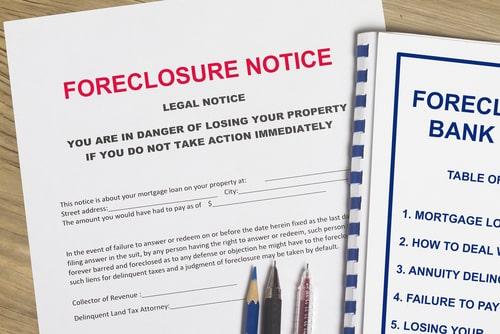1512 Artaius Parkway, Suite 300,
Libertyville, IL 60048
Call for a FREE Phone Consultation
847-549-0000
Video Consultations Also Available
 Spanish
SpanishServing Clients Across 7 Illinois Locations
Frequently Asked Questions About Illinois Consent Foreclosures
 Life can sometimes throw unexpected curve balls our way that prevent us from staying current on mortgage payments. Perhaps you or someone in your family has experienced a job loss, substantial increase in expenses, major health issue, or another surprising life event. Whatever the reason, being behind on mortgage payments can put an individual at risk of foreclosure. If you are facing a possible foreclosure, one option that may be right for you is a consent foreclosure.
Life can sometimes throw unexpected curve balls our way that prevent us from staying current on mortgage payments. Perhaps you or someone in your family has experienced a job loss, substantial increase in expenses, major health issue, or another surprising life event. Whatever the reason, being behind on mortgage payments can put an individual at risk of foreclosure. If you are facing a possible foreclosure, one option that may be right for you is a consent foreclosure.
What is a Deficiency Judgement?
Illinois law mandates that all foreclosures must go through the court system. The mortgage servicer may begin the foreclosure process when the borrower is four months or more behind on payments. If the homeowner cannot cure the default, the servicer will file a foreclosure lawsuit. If the lender wins the lawsuit, it has the authority to seize and sell your home. The difference between the amount you owe on your home and the home’s sale price is called a deficiency. Deficiencies can often be tens or even hundreds of thousands of dollars. The legal order requiring you to pay this difference is called a deficiency judgment.
Can a Consent Foreclosure Can Help Me Avoid a Deficiency Judgment?
If you want to avoid a stressful negotiations with the bank and a lengthy court process, you may be able to simply return the property to the bank and avoid a deficiency judgment through a consent foreclosure. An experienced real estate attorney can negotiate a consent foreclosure on your behalf. If the lender agrees to accept the consent foreclosure and waives the deficiency, you will be able to move on with your life without the burden of a costly deficiency judgment.
What are the Advantages and Disadvantages of a Consent Foreclosure?
The main benefit of a consent foreclosure is that you avoid owing a large debt and possible bankruptcy due to the deficiency judgment. You will also be required to forfeit your home. However, if the mortgage servicer is likely to win the foreclosure lawsuit and foreclose on your home anyway, agreeing to the foreclosure instead of fighting it may be your best option.
One possible disadvantage to a consent foreclosure is the potential tax implications you may be subject to as a result of the waived deficiency. Keep in mind, though, that tax-related costs are almost always much less expensive than a deficiency would be.
Your credit rating will also be affected by the consent foreclosure, as a consent foreclosure is still a foreclosure. This could make it more difficult for you to obtain a loan or financing for a new home in the future.
Contact a Lake County Consent Foreclosure Lawyer
If you are facing foreclosure, you do not have to go through this stressful process alone. To learn more about your legal options, including the possibility of a consent foreclosure, contact Newland & Newland, L.L.P. Call 847-549-0000 today to schedule a free phone consultation with a compassionate, knowledgeable Libertyville foreclosure defense lawyer.
Sources:
http://www.ilga.gov/legislation/ilcs/ilcs4.asp?ActID=2017&ChapterID=56&SeqStart=107100000&SeqEnd=115800000
https://www.investopedia.com/terms/f/foreclosure.asp
 Stop Foreclosure
Stop Foreclosure
















